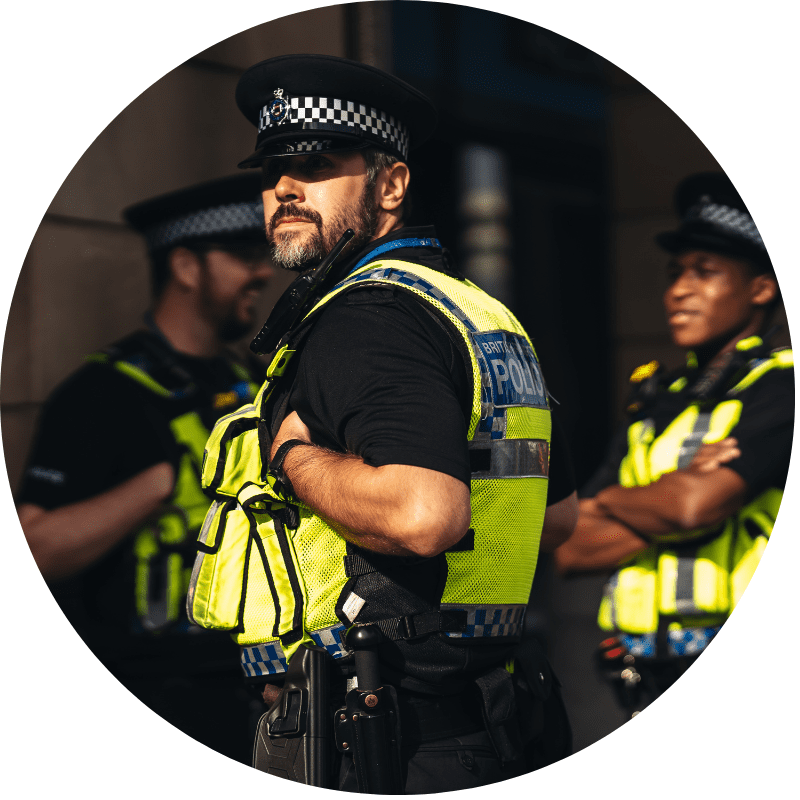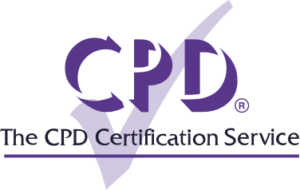In this Police Officers CPD Guide
Why do Police Officers need CPD?

The role of a police officer is to serve and protect the community by enforcing laws, preventing crime, and ensuring public safety. They also respond to emergency situations, investigate crimes, gather evidence, make arrests when necessary, and may also be involved in community outreach and education programmes. A police officer is an important job role in the UK because they are responsible for maintaining law and order, protecting citizens, and preventing crime. They also investigate criminal activities and work to bring offenders to justice. The presence of police officers helps to deter criminal behaviour, making the community safer for everyone. As of 31 March 2020, there were approximately 147,000 police officers in the UK. In the year ending March 2020, the police in England and Wales received 20.1 million emergency calls, of which 9.2 million were 999 calls.
What our customers have to say
Dan King
Mobilisation, Training & Performance Manager

Sophie Aiken
HR Manager

Harriet Lee
Retail Recruitment Manager

What CPD courses do Police Officers need?
Police officers are first responders in many situations and may work with a wide variety of people. Due to this, almost all of our courses can be suitable to support the knowledge and skills of a police officer.
Some of these courses include:
Modern Slavery – in this course you will explore the different ways that slavery persists in the modern world and how widespread modern slavery and human trafficking are. You will explore the industries in the UK most at risk of modern slavery offences, and the warning signs and symptoms of modern slavery.
Anti-bribery Awareness – this course will teach you what bribery is, the history of bribery and examples of bribery. It will explore what bribery might look like and the potential consequences of accepting a bribe, offering a bribe, and failing to prevent bribery. The Bribery Act 2010 and associated policy will also be explored.
Child Criminal Exploitation and County Lines – this course will give you insight into what child criminal exploitation (CCE) and county lines mean and how to recognise the signs and how to help and support victims and their families. It will cover the signs and risk factors related to this, as well as relevant legislation.
Child Sexual Exploitation – this course will go into detail about what child sexual exploitation is, as well as who is at increased risk of being sexually exploited. The myths about child sexual exploitation will also be covered so that students have a clearer understanding.
Domestic Violence – this course will cover the existing legislation surrounding domestic violence, and the key elements of domestic violence in relation to the behaviours that are experienced by both the abuser and the victim. Controlling and coercive behaviours will be explored in detail as these are at the foundation of all kinds of domestic violence.
Drugs and Alcohol Awareness – in this course you will explore how alcohol can lead to addiction, due to its ability to create significant changes in the human physiology and brain chemistry. You will explore the types of drug abuse and who is more at risk of developing an addiction, and the effects of misusing drugs (such as embarking on more risk-taking behaviour).
Mental Health Awareness – this course teaches the basics of mental health and why it is important to maintain a positive mental attitude. Since mental health affects us all, this course is fantastic for anyone working with people.
Download our CPD trackerA guide to CPD for Police Officers
To become a police officer in the UK, you typically need to meet certain eligibility criteria, such as having the right to work in the UK, being at least 18 years old, and having a clean criminal record. You will also need to pass various assessments and tests, including medical and fitness assessments, interviews and background checks. Once you have passed these, you will undergo training at a police academy. It’s worth noting that the exact requirements and process may vary depending on the police force you are applying to.
Continuing Professional Development (CPD) training is crucial for police officers because it helps them stay up to date with the latest developments in legislation and law enforcement and enhances their skills and knowledge. It also ensures that they can provide better service to the community, maintain public safety, and handle complex situations with confidence and competence. Furthermore, CPD training helps police officers to identify and address any gaps in their performance, which can improve their overall effectiveness as professionals. It is a part of a police officer’s job requirement to complete Continuing Professional Development (CPD). Police officers are regulated by professional bodies such as the National Police Chiefs’ Council (NPCC) and the College of Policing in the UK. These organisations set standards for the police profession and provide guidance on training and development to ensure that police officers are competent and effective in their roles.
CPD certificates
All of the CPD Online College courses that we offer result in you obtaining a CPD certificate. A CPD certificate signifies that you have successfully completed a course, and passed the test which proves that you have furthered your knowledge. Your certificate will be available for you to access immediately via a download from our website; complete with your name, the course title and level, as well as pass mark, associated accrediting bodies, and date of completion. This can act as a strong piece of evidence that will count towards your CPD training. If you prefer to keep important documents as a hard copy, you can simply print your certificate off, or we can send your certificate to you in the post.
Keeping CPD evidence
You should keep your CPD certificate to use as evidence that you have been completing your CPD training. It is a requirement to keep CPD training evidence to prove to regulators that you are still progressing in the field. To keep CPD evidence you should keep documents that relate to the CPD training you have been doing to show the type of activity that you have been working on. As well as CPD courses, some training activities could include research, attending webinars or conferences, e-learning, job shadowing and mentoring. As well as keeping CPD evidence documents you can log your CPD hours to further show the time you have spent on your learning.
Logging CPD hours
Some regulators require you to spend a target number of hours on CPD training activities each year. This number can vary between industries, so we advise checking this with your employer or regulatory body. As well as this, logging CPD hours can showcase the variety of CPD activities that you have completed and help you to identify where to spend your time learning to achieve a holistic CPD portfolio.
Renewing CPD certificates
The CPD certificate that you receive upon completing our online courses will have an expiry date because the courses themselves are updated to maintain accurate teaching. All industries have updates in the field that you must stay abreast of, but police officers in particular must always ensure that they uphold the latest legislative changes in enforcing the law to the public. Usually, your CPD course will need updating every two years, by way of completing the course again to refresh your knowledge, or by completing the next level of your course to help you progress in your field.
























